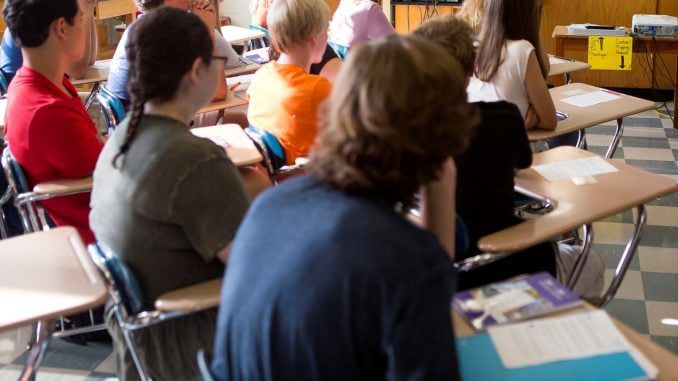
KNIGHTDALE, N.C. — For Jamie Paylor and Caleb Drummond it’s a typical school day: breakfast, commute, homework, track practice. For their mom, Kim Paylor, the comfort of this school routine at Raleigh Christian Academy is extra special. Jamie and Caleb are recipients of a program called Opportunity Scholarships, providing up to $4,200 from the state of N.C. for kids whose parents are looking for an alternative but can’t afford private school tuition. Paylor is a single mom, working two jobs. ”We absolutely couldn’t have done this another way, it’s meant everything. I was already trying to figure out how many more jobs I would have to work to put my child in a private school,” she said.
Paylor is also earning her master’s degree in education. She recently landed a job at a public school in Franklinton County teaching students who have learning disabilities. Caleb’s learning differences sparked her passion to help other kids. “In the smaller classrooms, you are able to get more academic attention and when there is less tolerance for behavior issues, the teacher is able to focus on the academics,” said Paylor.
The program was passed by the legislature in 2014 and the N.C. Association of Educators sued saying that there was not enough accountability. Private schools are not required to administer the same standardized tests as public schools. “If our end-of-grade tests are good enough for 1.5 million children, then why are they not good enough for the children who are going to a private school with taxpayers’ dollars?” said June Atkinson, Superintendent of N.C. Public Schools.
Opponents also object to tax dollars going into private religious schools. Among the hundreds of private schools participating in the program, the majority are religious: Christian, Islamic, and others faiths. ”While I am a Christian and I want everyone to be a Christian if it were just up to me personally, I value and respect the separation of church and state,” said Atkinson. “I just have questions about whether the Opportunity Scholarship has that separation of church and state.” The program was fought in the courts for 16 months until the N.C. Supreme Court decided on the side of Opportunity Scholarships saying that it was constitutional.
”I look at it not as a substitute for the traditional education system, I look at it as a complement to the education system,” said Darrell Allison, head of Parents for Educational Freedom in N.C. “Opportunity Scholarships are not an end-all-be-all, but a safety net. It really has been a saving grace for many children and many families.” To date, the program has had more than 23,000 applications from all 100 counties in N.C.
With a waiting list of more than 2,000 families, the N.C. General Assembly and Gov. Pat McCrory passed the state budget this year that allotted $145 million dollars over 10 years for the program, funded outside of the N.C. Public School system. The 10 years allows kids who started in kindergarten to be able finish high school in the program. “It gets us away from the ups and downs of the political thing and gives families a sense of permanence,” said Allison. “If their kids are thriving, they can be assured that it’s going to be around for a while.” That was a relief to parents like Kim Paylor. With her children settled and happy at Raleigh Christian Academy, she said she will weigh each decision about their education as it comes.
“It’s not for me, it’s for them,” said Paylor. “Sure these are state funds. We are all paying taxes, I am too. That’s why the choice is so important. Different environments work better for different kids. One kid can thrive in a huge high school, and others just can’t.”



